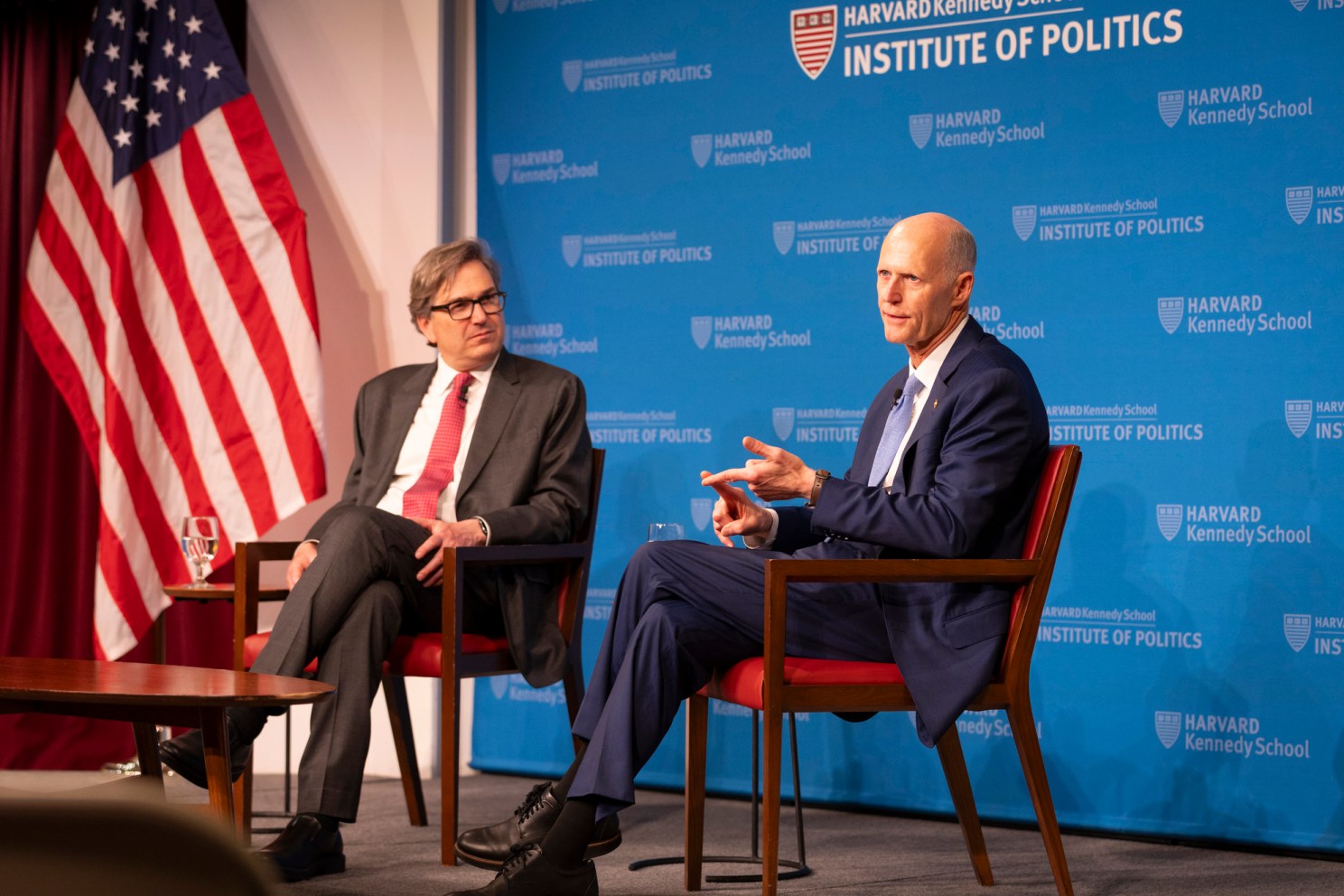Rick Scott argues tariffs will level playing field, help U.S. workers

Jason Furman (left) and Sen. Rick Scott at the JFK Jr. Forum.
Niles Singer/Harvard Staff Photographer
Republican senator also views China as nation’s most concerning competitor
Republican Senator Rick Scott defended the Trump administration’s tariff strategy as a way to press other nations to drop their own levies on American products during a recent conversation with Jason Furman, Aetna Professor of the Practice of Economic Policy.
“What [President] Trump is saying is that the American worker is not going to be disadvantaged any longer,” said Scott. “My approach would be I want the American worker to sell more stuff. So, lower your tariffs, lower your barriers, get rid of all of it.”
The government announced a sweeping series of tariffs on most of the nations in the world in early April as part of an attempt to reshape decades of U.S. trade policy. The move has triggered volatility in global stock markets and is being blamed, in part, for a sharp contraction in first quarter gross domestic product.
At the April 13 event hosted by the JFK Jr. Forum at the Institute of Politics, Furman asked Scott whether he thought the White House could have pursued negotiations with trading partners instead of imposing tariffs unilaterally. It could have prevented fears of an economic downturn that wiped $6 trillion off the stock market, said Furman.
Scott said American workers ultimately will benefit from Trump’s tariffs.
“I want American workers to sell their stuff. Don’t put any barrier on us, we won’t put any barriers on your country’s workers … I don’t know if it’s better to do a big deal like that or individual deals, but I would make it as simple as that,” said Scott, a longtime Trump ally who was governor of Florida from 2011 to 2019.
“My belief is that we should do no trade with China. The only way we don’t go to war with China is if their economy is demolished.”
Sen. Rick Scott
Trump has said tariffs could help close trade deficits and help U.S. manufacturers and workers, but many economists disagree. In a New York Times column, Furman said that Trump’s tariffs would hurt the U.S. economy.
The conversation touched on a wide range of topics, from tariffs to China to debt and executive power. Scott saved his most pointed criticism for China, a country whose economic and political power is more concerning to him than that of Russia.
“My belief is that we should do no trade with China,” said Scott. “The only way we don’t go to war with China is if their economy is demolished.”
The government levied a 10 percent tariff rate on most nations with the exception of China, which now faces a rate of 145 percent. In retaliation, China imposed a 125 percent tariff on U.S. imports.
When asked about the national debt, which the nonpartisan Congressional Budget Office projects will be about $20 trillion over the next decade, Scott suggested that a balanced budget and reduced spending are necessary to help improve the nation’s fiscal outlook.
As for his view on whether tariffs will lead to inflation, Scott said he is not sure.
“I don’t know what the tariffs will do to inflation,” he said. “I think inflation will only get under control if we balance the budget. We’ll see what the tariffs do.”




